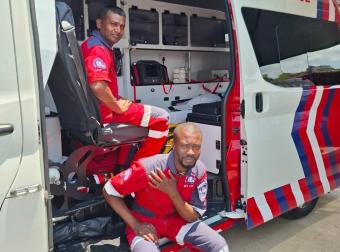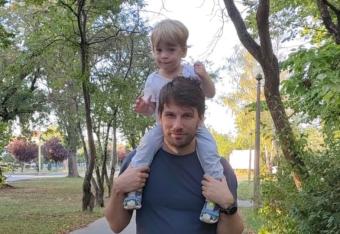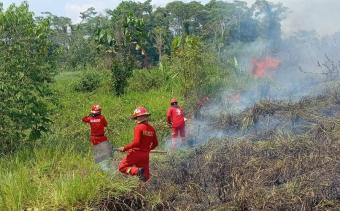A pilot project in Bucharest shows why prenotification is a key priority action in the stroke pathway, demonstrates how teamwork between hospital and ambulance teams can change lives, and leads to a very proud moment for the city’s ambulance service.
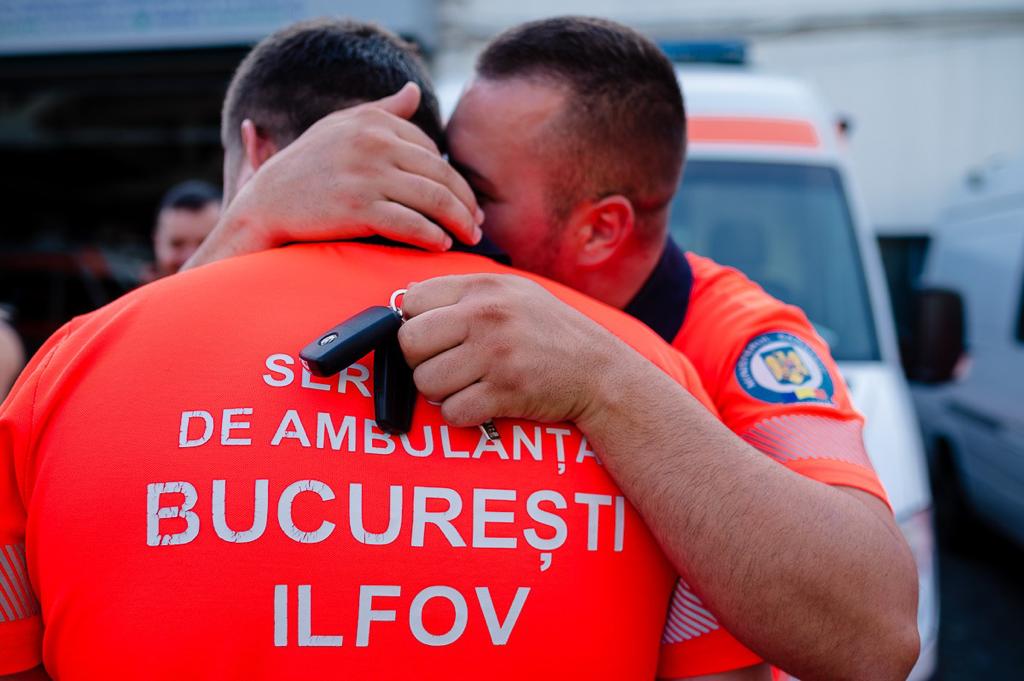
Saving a life starts with a phone call from the ambulance team to the doctor heading up the shift at the Ambulance Service Bucharest Ilfov (SABIF) in Bucharest, Romania.
There are two vital pieces of information the ambulance team must report – the last time the patient, who is a suspected victim of stroke, was seen normal; and the patient’s score on the stroke severeness evaluation scale, RACE.
From this information the shift coordinator will
deduce whether the patient is within the therapeutic window for reperfusion, and what the likelihood is that they have suffered a large vessel occlusion. This will determine which hospital will receive a call prenotifying them that a stroke patient is on the way.
Prenotification mobilises the resources of the receiving hospital before the patient arrives, resulting in shorter door-to-imaging and door-to-needle times. Because the benefits of revascularisation procedures decline with treatment delay, every minute lost diminishes this patient’s chances of recovery, and every second gained gives life a chance. This is how a single phone call can change a life.
Partnership drives change
Since July 2021, the stroke phone has been ringing regularly at seven hospitals in Bucharest, Romania. This is the result of a prenotification pilot project aimed at driving down the country’s median door-to-treatment time for acute stroke through the intersection between prehospital and in-hospital care.
If the project succeeds, it will provide the breakthrough anticipated since 2019 when the Romanian health authority implemented a national project in 2019 to significantly increase the network of stroke-ready hospitals in the country. In one of the most rapid stroke network expansions in Eastern Europe, the number of stroke centres tripled within a matter of months. By 2020 the recanalisation rate had more than quadrupled from 0,8% in 2018 to 4,10% but still fell short of the target of 15%, and median door-to-needle time had stalled at around 55 minutes.
Partnership between strokology and emergency services was right at the root of the project, as it was Romania’s national stroke coordinator Associate Professor Cristina Tiu and General Manager of SABIF Dr Alis Grasu who together petitioned the Minister of Health to greenlight the pilot. They would again team up to provide the training alongside neurologists from the University Hospital Bucharest, Drs Elena Terecoasa, Razvan Radu and Vlad Tiu (now at the University Emergency Hospital Elias), and emergency department physician Dr Silvia Nica.
Implementation got underway in June 2021 when almost 400 out of Bucharest’s 500 ambulance doctors and nurses attended the first of four online training sessions that would usher in a new chapter for stroke care in the Romanian capital.
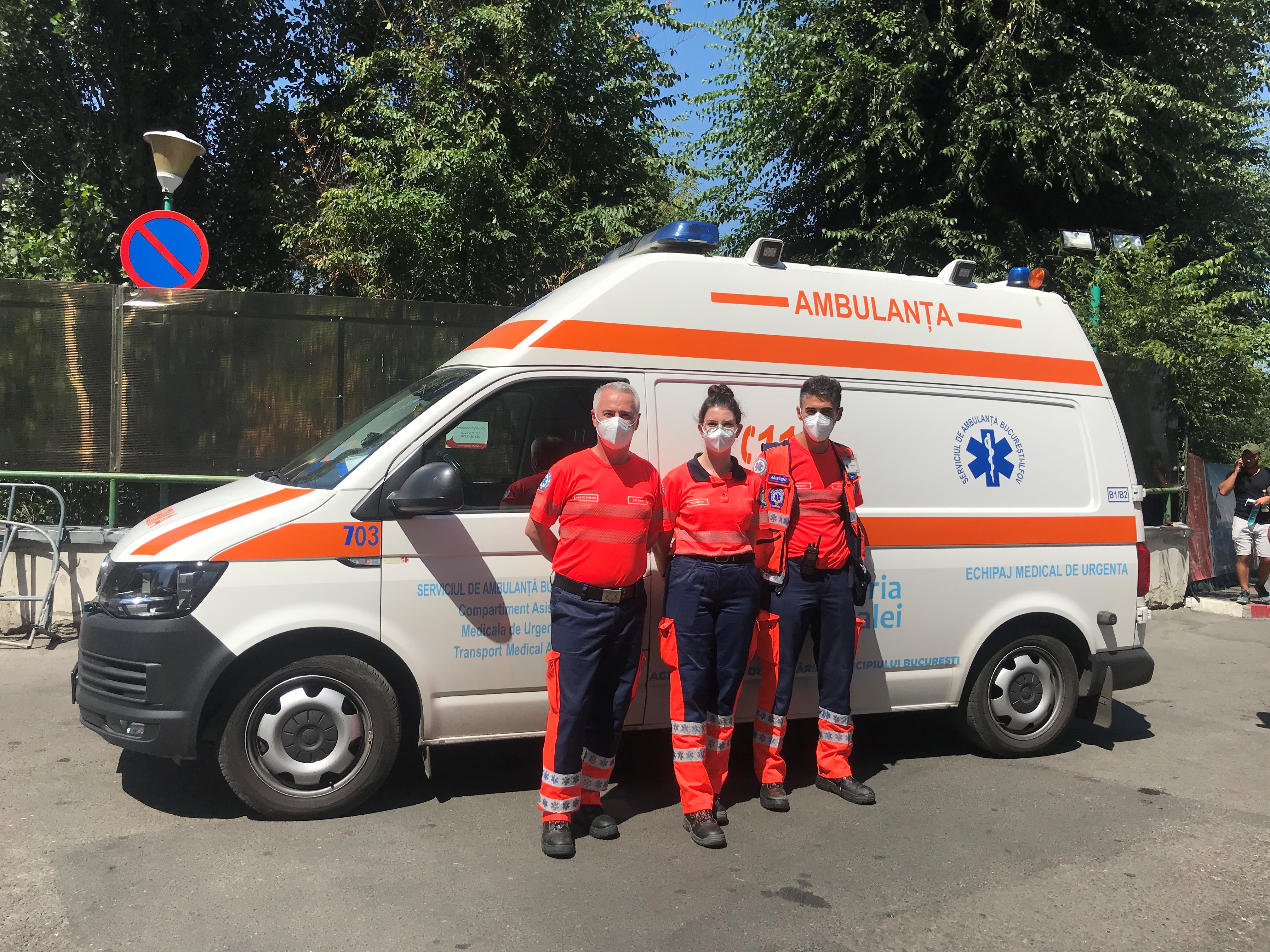
Good news travels fast
As well as basic stroke concepts and an overview of the prenotification pilot project, the training included an introduction to the RACE scale – a stroke severity evaluation scale that was developed by neurologists in Catalonia and selected for its efficacy in identifying large vessel occlusion (LVO) in the prehospital phase. If LVO is suspected, the ambulance will be directed to one of two thrombectomy-capable stroke centres in Bucharest.
Nine days after the training ended, the stroke phone rang in Bucharest University Emergency Hospital where Associate Professor Tiu heads up the stroke unit. When the patient arrived, the stroke team was waiting at the entrance, ready to receive him, and treatment commenced in under 30 minutes. The pilot was off to a flying start.
The good news spread quickly to neighbouring counties. Just one day after SABIF dialed in the first stroke call, 100 ambulance service members in Dâmbovița County north west of Bucharest reported for prenotification training. They had heard about the pilot in the capital and wanted assistance with implementing it
in their own county where Emergency County Hospital Targoviste became a stroke-treating hospital in 2018. The next call came from Bacău County further to the north.
Mandatory prenotification for stroke could be expanded throughout Romania once the success of the Bucharest pilot has been formally confirmed, but hospitals and emergency services outside the capital clearly didn’t need an official order to give life a chance.
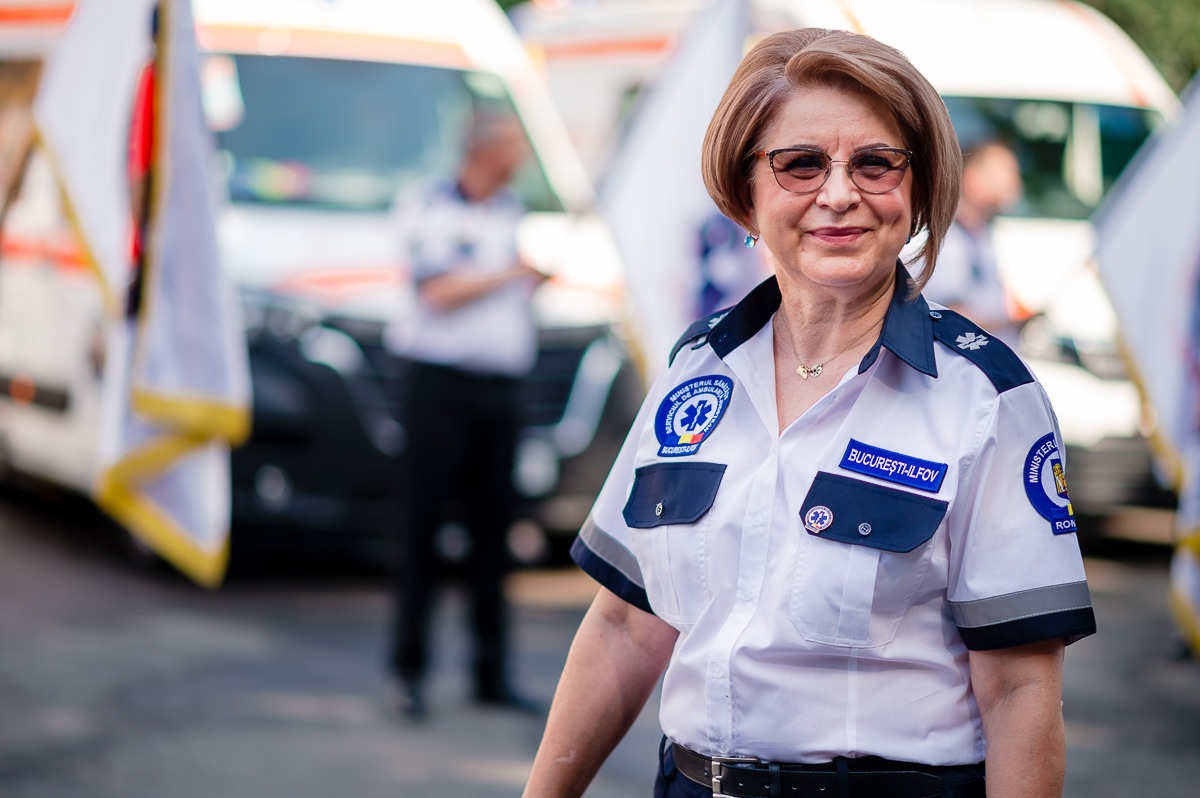
There is even more good news
When the EMS Angels Awards were launched in 2021 to recognize excellence in prehospital care, SABIF ticked all the boxes but one. However now that their protocol included prenotification, they were one of only nine ambulance services in Europe, and the first in Romania, to receive an inaugural award at EUSEM 2021 in October.
Their Gold status was achieved by recording a median on-scene time under 30 minutes, delivering at least 85% of patients to stroke-ready hospitals, reporting patient medications and last time known normal in at least 85% of cases, and – thanks to the Bucharest pilot – prenotifying hospitals at least 85% of the time.
Angels consultant for Romania, Cristina Stanciu, is beaming with pride at seeing the ambulance team from Bucharest take their place on the stage. For Ambulance Service Bucharest Ilfov, their first EMS Angels Awards is indeed a moment to be proud of but, as Dr Grasu says, “The real success of this programme was the return of the patient to both family and society.” For the ambulance men and women of SABIF, the real winners are their patients who, thanks to teamwork between ambulance and hospital teams, are given a second chance at life.

